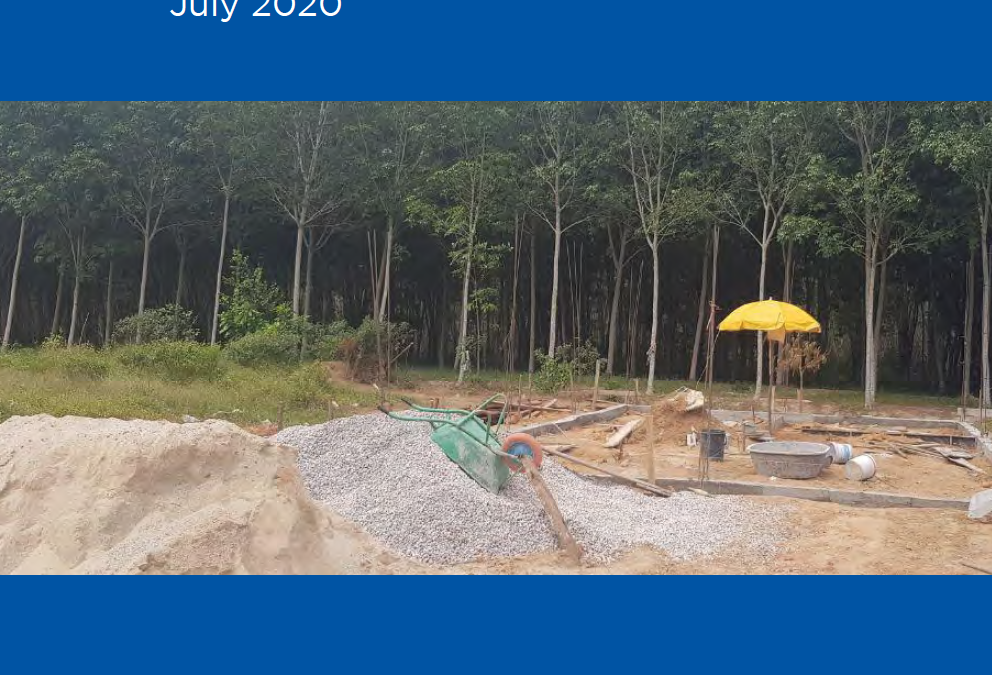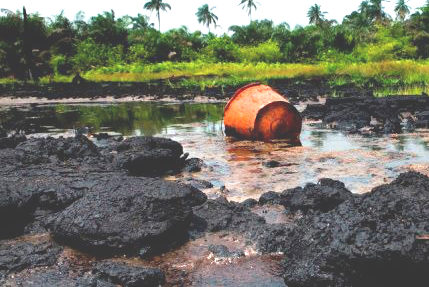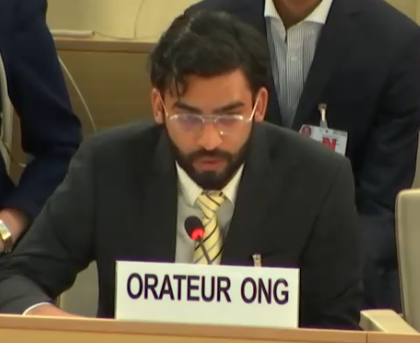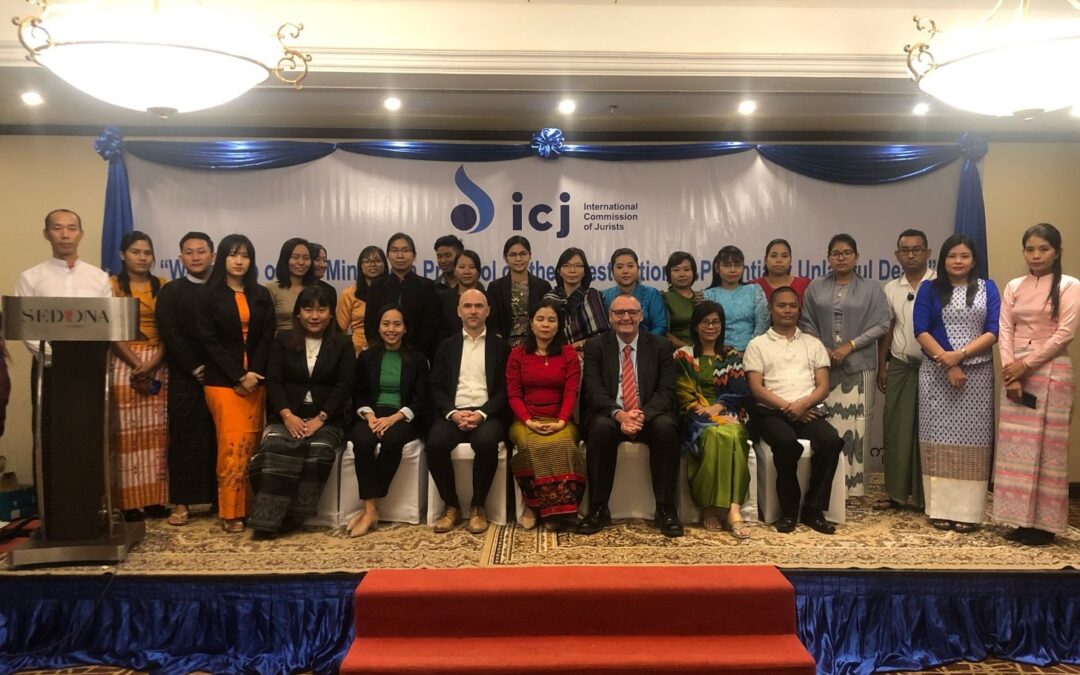
Aug 3, 2020
In a report published today, the ICJ called on the Thai government, legislature and regulatory agencies to take steps to address deficiencies in the legal and regulatory framework governing economic development in Special Economic Zones and the Eastern Economic Corridor to improve transparency, protect communities and labourers’ human rights, and implement safeguards to mitigate the adverse impact of such development on the environment and human rights.
The report, titled ‘The Human Rights Consequences of the Eastern Economic Corridor and Special Economic Zones in Thailand’ identifies gaps and weaknesses in the current law and policy governing investment in areas that have been designated for economic development in order to attract foreign investment. The report documents reported human rights violations and abuses of affected communities, as well as the adverse impact on the environment and working conditions for migrant labourers.
Drawing on international law and good practices, and the ICJ’s previous work in Myanmar, the report offers a detailed set of recommendations for how to improve the existing legal framework in order to prevent future human rights violations and abuses and provide reparation to victims of human rights violations perpetrated in and associated with SEZs.
“There is no reason for Thailand to repeat the mistakes made by governments elsewhere in the world that have rushed to dilute human rights and environmental legal protections in a misguided attempt to attract foreign investment,” said Frederick Rawski, ICJ Asia-Pacific Director.
“Safeguarding the well-being of local communities and the environment, ensuring decent conditions for migrant workers, and establishing transparent and inclusive decision-making processes are essential elements of a sustainable development that respects human rights,” he added.
As discussed in the report, the current laws and regulations governing SEZs do not contain adequate procedural safeguards and human rights protections, including for the rights to food, health, water, work and adequate housing.
While the law governing development of the EEC does contain a number of provisions that protect communities and the human rights of affected individuals, the report outlines concerns about the regulatory body governing the EEC’s broad discretionary powers and inadequate transparency in its work, as well as a lack of adequate preventive and remedial frameworks to ensure respect of human rights and environmental protections in areas designated for development under the law.
“The ICJ is encouraged by the fact that Thailand has adopted a stand-alone National Action Plan (NAP) on Business and Human Rights – the first country in Asia to do so. As part of the NAP, it has committed to reviewing and amending laws and regulations to ensure that they comply with human rights law and standards”, said Rawski.
“This report offers a set of concrete recommendations for law and policymakers to help them to fulfill this commitment as it pertains to the environmental and human rights consequences of SEZs, and the development of the EEC in particular,” he added.
The report was based on extensive legal research, as well as interviews with over 90 people, including individuals from affected communities in Chonburi, Chachong Sao, Rayong, Songkhla and Tak provinces, as well as human rights lawyers, academics and government officials at the provincial and central levels.
Key recommendations to the Government of Thailand
- Protect human rights by amending SEZ legal frameworks, EEC laws, laws governing land acquisition and environmental and labour protections, following meaningful public consultation in accordance with international standards, to ensure that:
- the government bodies responsible for developing and administering SEZs and the EEC be independent, and operate in a transparent and inclusive manner including by providing public participation in planning and decision-making processes;
- all persons have a minimum degree of security of tenure sufficient to protect them from forced eviction, harassment and other threats;
- standards be in place to protect the environment, and to mitigate the impact of environmental degradation on communities; and
- all workers enjoy equal rights protections based on the principles of non-discrimination and equality.
- Adopt an amended SEZ Act that contains provisions that are in compliance with Thailand’s international human rights obligations.
- Ensure that effective, prompt and accessible judicial and non-judicial remedies be provided to those affected by the implementation of SEZ and EEC policies; and
- Ensure that companies operating in SEZs and the EEC carry out business activities in line with the UN Guiding Principles on Business and Human Rights.
Download
The Human Rights Consequences of the Eastern Economic Corridor and Special Economic Zones in Thailand in English and Thai. (Updated in February 2021)
Story with additional background information in English and Thai.
Contact
Frederick Rawski, ICJ Asia Pacific Regional Director, e: frederick.rawski(a)icj.org
Further reading
Myanmar: amend Special Economic Zones Law to protect human rights – new ICJ report

Jun 2, 2020
The CORE Coalition and the ICJ have jointly submitted evidence as interveners in a landmark case before the UK Supreme Court brought by some 40,000 people from the Ogale and Bille communities of the Niger Delta (Nigeria) against oil major Royal Dutch Shell (Okpabi et al vs Royal Dutch Shell et al) for serious harm to their human rights and well-being.
On 23 June, the Supreme Court will consider whether Shell can arguably be held liable for pollution caused by its Nigerian subsidiary, which destroyed farming land, wiped out fish stocks and poisoned drinking water. In 2018 the Court of Appeal ruled that Shell did not exercise enough control over the subsidiary to hold it responsible for the well-being of those affected by the oil spills.
This is the latest stage in a four-year legal action brought by communities seeking compensation for the catastrophic environmental damage caused by widespread oil spills.
The CORE and ICJ submission sets out the applicability of comparative law and standards regarding companies’ responsibilities in relation to human rights and environmental protection. These show that Royal Dutch Shell PLC (Shell) had a duty of care in relation to the communities affected by its Nigerian subsidiary’s activities.
In 2019, CORE and the ICJ made a similar submission to the UK Supreme Court in a case brought by Zambian communities against mining giant Vedanta.
In a groundbreaking decision allowing the case to proceed, the Court ruled that companies can be held to account for public commitments regarding their subsidiaries’ operating standards.
Both CORE and the ICJ have been lead participants in the elaboration processes of all major international instruments in the field of businesses’ human rights responsibilities in the last decade.
Nigeri-Okpabi-Advocacy-Legal submission-2020-ENG (full submission in PDF)

Mar 6, 2020 | Advocacy, Non-legal submissions
The ICJ, speaking in a general debate at the UN Human Rights Council in Geneva, urged all States to work together towards adoption of a treaty on business and human rights, and highlighted threats to the independence of the judiciary in Europe.
The statement, delivered in the general thematic debate at the Council, read as follows:
“The International Commission of Jurists (ICJ) welcomes the report of the 5th session of the Intergovernmental Working Group (A/HRC/43/55) in charge of the elaboration of a treaty on business and human rights and notes the consensual nature of its conclusions and recommendations. Abuses of human rights and environmental degradation caused with the involvement of business enterprises have so far been met with very limited action by businesses and States.
The ICJ considers that the revised draft treaty is a serious and advanced proposal that is suitable for negotiations and thanks the Chair-Rapporteur for its efforts and leadership in this process.
The ICJ urges States that are not yet actively involved in the negotiations to join the growing number of States that are active for a final push.
The ICJ also draws the attention of the Council to serious threats to independence of judges and lawyers in European countries.
In Poland, judges are being disciplined merely for applying EU law, under legislation curtailing their freedom of expression and independence.
In Turkey, independence of lawyers and judges continues to be seriously compromised, as demonstrated by the disciplinary proceedings against the Gezi trial judges launched after critical comments by the President of Turkey.
The ICJ urges the Council to give attention to these developments of extreme concern.”

Mar 2, 2020 | News
The ICJ hosted a two-day workshop on 29 February and 1 March 2020 in Yangon, Myanmar entitled “Workshop on the Minnesota Protocol on the Investigation of Potentially Unlawful Death.”
Some 25 lawyers attended the event, including criminal lawyers handling murder cases and human rights lawyers. The workshop was opened with remarks by Frederick Rawski, Director of the ICJ’s Asia & Pacific Programme. He emphasized the importance of conducting investigations consistent with international standards in holding perpetrators accountable for unlawful killings.
The Minnesota Protocol provides guidance on the State’s implementation of its duty under international law to investigate potentially unlawful killings, including when State actors may have been involved. It applies to deaths under custody, suspicious deaths and enforced disappearances. Myanmar has experienced widespread incidents of such deaths, including in recent years those constituting serious crimes under international law.
An overview of the international human rights law framework was provided by ICJ Associate Legal Adviser Jenny Domino, highlighting how the conduct of prompt, effective and impartial investigations into unlawful killings is a core component of the State’s obligation to uphold the right to life. Drawing from her previous work in the Philippines, she also discussed the applicability of Minnesota Protocol standards to the human rights investigations of the killings arising from the Philippine ‘war on drugs’. ICJ Legal Adviser Hnin Win Aung then introduced the Minnesota Protocol and its 2016 revision before discussing the role of lawyers in ensuring that the State conducts investigations in accordance with international standards.
Glenn Williams, an experienced international criminal investigator and Detective Inspector (Retired) of the New Zealand Police Force, discussed how to properly secure a crime scene and chain of custody in order to preserve the integrity of the evidence. Participants applied these skills in a group exercise based on a real-life case scenario. He also presented on the proper conduct of witness interviews and the investigative challenges of dealing with telecommunications evidence.
Dr Porntip Rojanasunan, a forensic pathologist in Thailand and Member of the Expert Advisory Panel during the Minnesota Protocol revision process, shared her forensic expertise through illustrative cases that she had worked on in Southeast Asia in the past two decades. Dr Porntip stressed the importance of forensic pathology in determining the true cause of death and of conducting an autopsy in potential cases of human rights violations.
The workshop is part of the ICJ’s ongoing promotion of international human rights law and standards globally. In Asia, this has included engagement with Myanmar authorities as well as authorities in neighboring countries on the Minnesota Protocol.
See also
Myanmar: ICJ co-hosts Minnesota Protocol workshop with government authorities
Myanmar: ICJ discusses the Minnesota Protocol with prosecutors
Statement: Five years without justice for journalist Ko Par Gyi
Related material
Minnesota Protocol (English)
Minnesota Protocol (unofficial Burmese translation)

Feb 17, 2020
Today the ICJ published a guide on Corporate Accountability for Abuses of Economic, Social & Cultural Rights in Conflict and Transition.
Around the world, businesses frequently operate in areas or regions in which armed conflict, internal disturbances or upheaval, severe authoritarianism, or other crises are either continuing or have recently ceased.
It is now common for societies seeking to move past such periods to employ transitional justice processes and mechanisms in efforts to build constitutional democracies grounded in the rule of law, protection of human rights and the fair administration of justice.
At times businesses are involved, either directly or in complicity with State agents, armed groups or other actors, in human rights violations or abuses, which occur during or after such conflicts or authoritarian settings.
These abuses may be of civil and political rights but they also often implicate economic, social and cultural rights. Failure to properly consider abuses of economic, social and cultural rights in transitional justice processes, including those caused or contributed to by businesses, can render their outcomes less effective and unsustainable.
All transitional justice processes and mechanisms must be grounded in the principles of international law.
This guide therefore sets out the core principles of international human rights law relating to: Transitional Justice; Economic, Social and Cultural Rights and Business and Human Rights, clearly describing how these three sets of principles interact and coalesce.
This guide will therefore be particular useful to transitional justice practitioners in ensuring that the design and implementation of transitional justice processes and mechanisms are fully consistent with international human rights law.
It also provides guidance to businesses in considering how to ensure compliance with international human rights law when they are operating in situations where conflict is occurring, likely to occur or recently has occurred.
In addition, because of their severe vulnerability of children to rights violations in such contexts, the guide includes a specific chapter focuses on corporate accountability for abuses of children’s rights in conflict settings.
The guide draws on examples of best practice throughout and includes case studies and examples from a wide range of countries including: Argentina; Colombia; East-Timor; Mauritius; Myanmar; Liberia; South Africa; Sierra Leone; Uganda and Tunisia.
Read also
The guide is best read with the following ICJ publications:
The ICJ’s Practitioners Guide on The Right to a Remedy and Reparation for Gross Human Rights Violations; the ICJ’s Practitioners Guide on Adjudicating Economic, Social and Cultural Rights at National Level; The ICJ & Child Rights International Network’s Practical Guide for Non-Governmental Organizations on how to use the United Nations Committee on the Rights of the Child’s General Comment No. 16; and the ICJ and UNICEF’s Practical Guide for States on how to implement the United Nations Committee on the Rights of the Child’s General Comment no. 16.
Download
Universal-ESCR accountability guide-Publications-Reports-Thematic report-2020-ENG (the full guide, in PDF)
Universal-ESCR accountability guide summary-Publications-Reports-Thematic report-2020-ENG (the executive summary and overview, in PDF)









